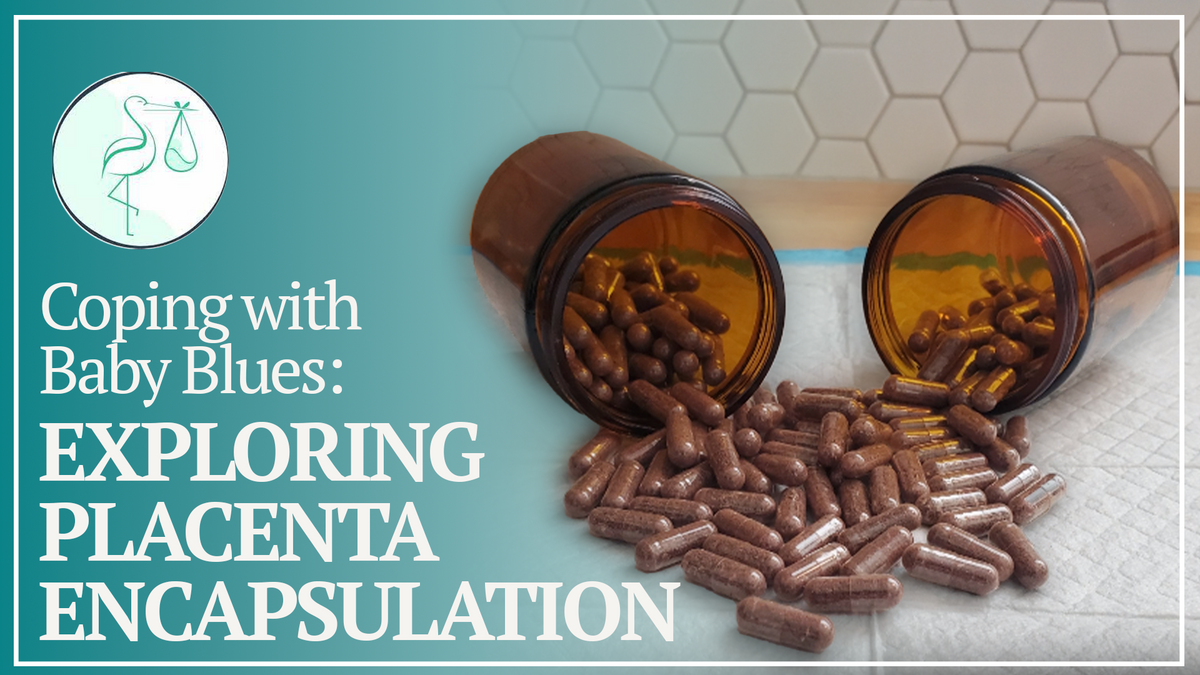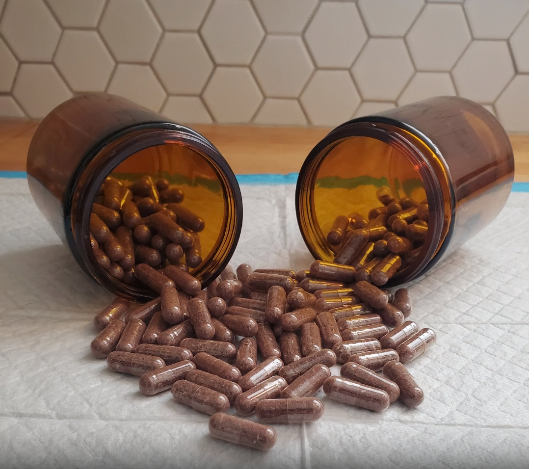Coping with Baby Blues: Exploring Placenta Encapsulation

Pregnancy and birth are one of the most hectic times in a young mama's life. There is so much to do, learn, and prepare and many mamas find that after they give birth they are left with a feeling of listlessness or depression which we sometimes call the baby blues, or in more severe cases, postpartum depression.
According to the National Library of Medicine, around one in every seven women can develop postpartum depression. The number who experience baby blues is much higher. It is common for new mamas to feel some kind of emotional low in the weeks or months following giving birth. This can be caused by numerous factors, including dips in hormone levels, iron deficiencies, and a sudden decline in community support.
In this blog post, we will talk about how mamas can cope with baby blues and the astounding effect placenta encapsulation has on helping mamas bounce back from baby blues or postpartum depression. Keep reading to learn more!
.jpg)
Understanding the Baby Blues
You may have heard the term baby blues used to describe the way new mamas feel in the days or weeks after giving birth to their new baby.
The baby blues are typically a short-term feeling of sadness, weepiness, or moodiness that most new mothers experience for several weeks postpartum. It is caused by a combination of biological and emotional factors, including hormonal fluctuations, lack of sleep, and feeling overwhelmed by caring for a newborn. This can lead to mama feeling stressed, anxious, irritable, or any other concoction of emotions.
Baby blues typically start just a few days after giving birth and can stretch two weeks or longer into the postpartum period before mamas begin to notice improvement. And even though it is a temporary affliction, even mild postpartum depression should be treated seriously for the well-being of both mama and her baby.
One of the best ways to ebb the negative effects of the baby blues is to prepare mamas for them before they give birth. When mamas understand that the baby blues are perfectly natural, and even likely, it can help reassure her and give her the hope she needs to get through the often difficult first few weeks after giving birth.
Another way to reduce the negative effects of baby blues is through the process of placenta encapsulation. In the next section, we will discuss the idea of placenta encapsulation and how it can help new mamas cope with the baby blues.

What is Placenta Encapsulation?
Placenta encapsulation is the process of taking a mama’s placenta, dehydrating it, and turning it into capsules that can be taken orally. Placenta consumption has been used in many cultures for centuries as a way to honor and nourish the mother postpartum. However, placenta encapsulation can have astounding effects on mama's mental health too!
What are the amazing orally active substances that exist in the placenta? Learn more here!
A temporary organ that is formed in the womb alongside the growing baby, the placenta is the organ responsible for transferring nutrients to the baby from its mama's bloodstream. Soon after the baby is born, the placenta follows, and, unfortunately, many mamas and medical providers choose to discard it at this point.
However, many mamas are now discovering the wonderful effects placenta encapsulation can have on their health in the postpartum period. Placenta encapsulation is becoming increasingly popular amongst mamas who are looking to find natural ways to cope with the baby blues and with good reason.
One study found that the placenta had a combination of 16 different hormones (of 17 tested) which are thought to restore a woman's hormone levels in the weeks following birth. Some of the hormones that appear in the placenta include oxytocin, prostaglandin, prolactin, human placental lactogen (hpl), progesterone, serotonin, corticotropin-releasing hormone, and thyroid-releasing hormone (trh).
In addition, a 2017 study found that 78% of the study's participants' hemoglobin levels were above the World Health Organization's cutoff for gestational iron deficiency after the conclusion of the study, indicating that placenta consumption may be able to improve the health of those mamas who suffer from anemia postpartum.
So, what are the benefits of placenta encapsulation? Well, many mamas report feeling more balanced emotionally after taking their placenta capsules. This is thought to be due to the hormones in the placenta that can help restore hormone levels and support healthy postpartum recovery. In addition to this, some mamas also report feeling more energized, having an increase in milk production, and having an overall improved mood.
In addition to placenta encapsulation postpartum, taking essential oils during pregnancy can also help! Learn more here!
Placenta Encapsulation from Stork Helpers
Many benefits come with orally taking placenta capsules. Many mamas note that they have higher energy levels, increased milk production, and an overall better mood after they begin taking placenta capsules.
Placenta encapsulation is a simple process wherein the placenta is dehydrated and processed in the hours after birth. Once placed in capsules, mamas take a predetermined number of capsules per day for the first few weeks or months of the postpartum period.
Baby blues can be tough. But you don't have to face them alone. Your doulas at Stork Helpers are here to stand by your side and help you face the toughest of battles that come with early motherhood. We offer placenta encapsulation services to help improve your postpartum doula care, in addition to our birth doula services, childbirth classes, and more.
If you are interested in placenta encapsulation after birth in Cincinnati or Dayton or want to learn more about what placenta encapsulation may be able to do for you, click here to reach out to Tamara and Skylar at Stork Helpers today!
Follow Stork Helpers on Facebook, Instagram, and LinkedIn for more tips on placenta encapsulation and pregnancy guidance.
Happy with the difference Stork Helpers made in your pregnancy journey? Leave us a quick five-star review here!

